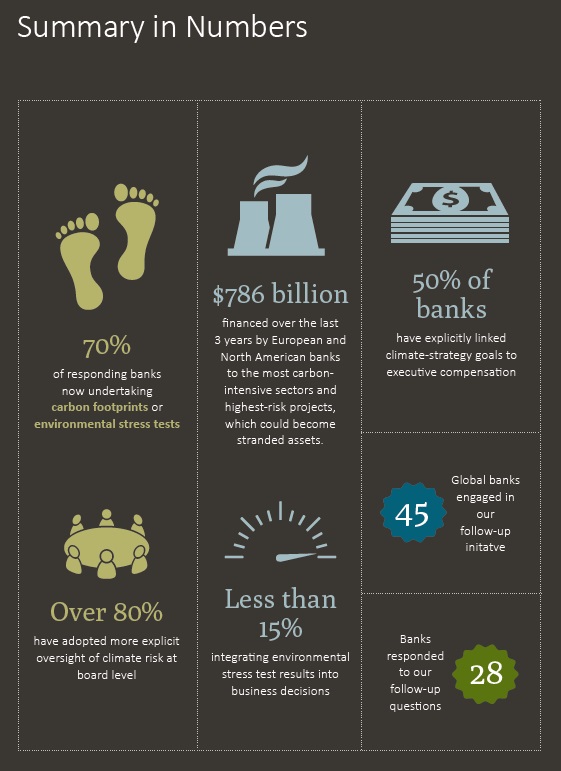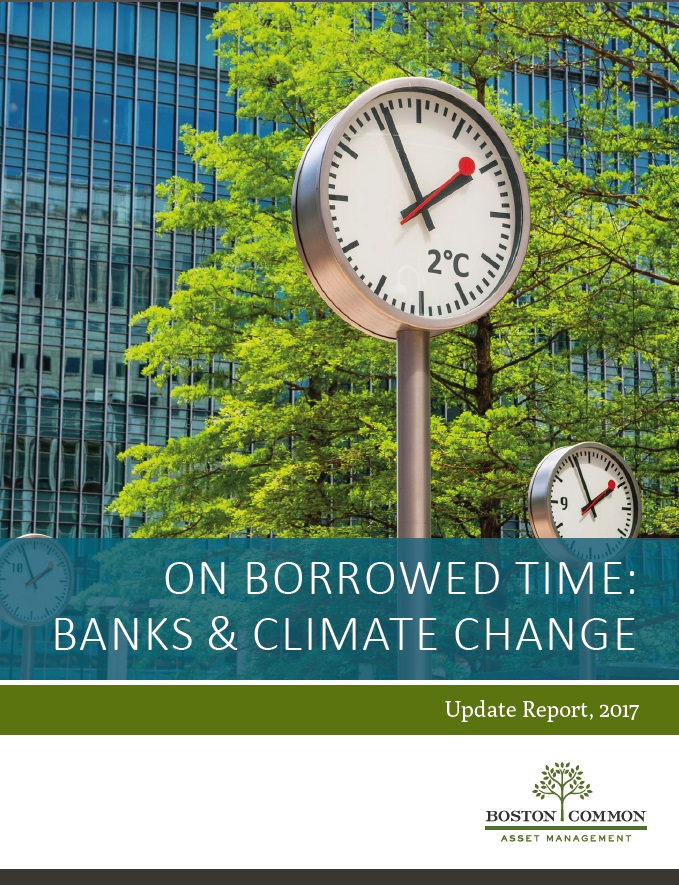On borrowed time: banks & climate change
Introduction
The global banking sector stands at a crossroads on climate. The Paris Agreement became effective in November 2016 and has catalyzed both the size and urgency of risks such as ‘stranded assets’, and the market for opportunities to finance the transition to a low-carbon economy. This is set to have a profound impact on the banking sector over the short and longer term.
As climate risk becomes recognized as critical to banks, investors want to know whether this risk is being managed well and at the highest levels of the organization. For example, are the world’s biggest banks incorporating top level corporate assessments of the potential effects of climate change on their loan portfolios, or adopting policies and governance systems to comprehensively manage climate-related risks? And are they offering products and services that support the transition to a lowcarbon economy?
Since 2014 Boston Common Asset Management has led a $500bn coalition of investors to examine banks’ strategic approach to the management of climate-related risks. This report updates this work, building on our October 2015 report: “Are Banks Prepared for Climate Change?”. These latest findings report on new policies, programs and products at 45 previously engaged banks. In addition, we identify industry-level trends on the revised call to action, and describe and define leading practices.
Summary Findings
This year’s analysis reflects that banks are moving forward, but not quickly enough to keep pace with risks from a rapidlychanging climate. For example while major banks such as Citigroup, PNC Financial, and Westpac now undertake environmental stress testing on their credit portfolio; the vast majority of the banks assessed (over 80%) do not yet integrate the results of environmental stress testing into their business decisions.
We invited the banks to share any policy or program changes they have implemented since our last study. An encouraging 23 out of the 28 banks or over 80% have implemented substantive policy changes related to climate-risk. Across the board, banks are continuing to adopt policies and practices that support the transition to a low-carbon economy. They are integrating climate strategies into corporate governance systems, collecting climate data and expanding financing of and lending to energy efficiency and renewable energy.
The report finds:
• Climate Strategy: There has been marked progress in more explicit oversight at the board level, establishment of performance goals, and links to compensation.
• Financing the Low Carbon Transition:There is increased disclosure on how much these banks are financing or investing in energy efficiency and renewable energy. However, we continue to see little or no guidance on targets for lending or investing in renewable or energy efficiency.
• Risk Management:The greatest improvement was in the use of carbon footprinting and environmental stress tests. However we have yet to see how this information is integrated into management decision-making or goal-setting related to energy portfolio re-balancing or increased due diligence for carbon intensive sectors. Only a small number of banks are establishing or disclosing public goals to reduce exposure to carbon intensive sectors.
To download the full report, please click here.

